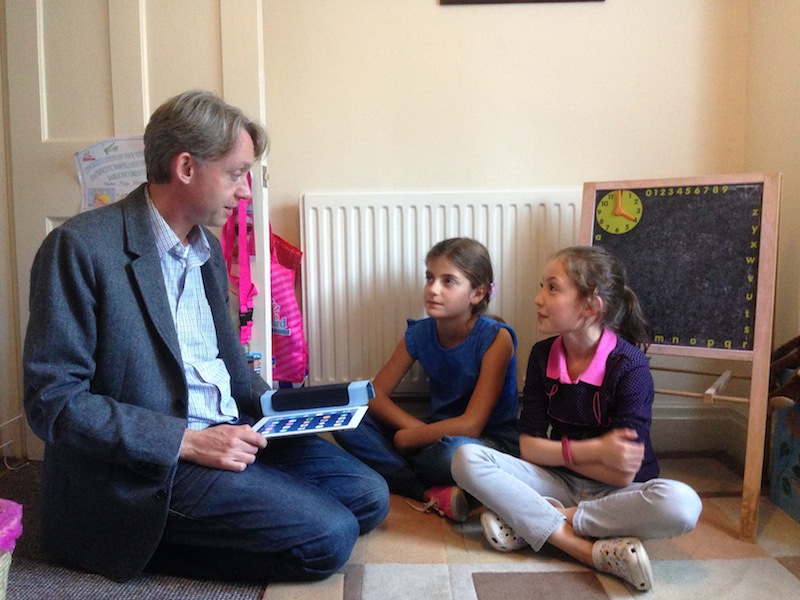For Hasnat Afzal it’s a no brainer.
“I think moving away from home is a huge part of the university experience,” says the 19-year-old pharmaceutical science student from Peterborough, who has just completed his first year at Liverpool John Moores university.
“By making up your own rules away from home, you have a massive sense of independence.”
Stark choices
But many students going up to university this autumn face a stark choice: home or away.
Increased tuition fees and the effect of inflation on family budgets has left many would-be undergraduates considering a university closer to home – maybe even living with their parents.
Pete Mercer, Vice-President of the National Union of Students (NUS), says: “Whilst family commitments, work or other things can make not moving away to study attractive for some students, no-one should have to make the decision of where, and sometimes what, they study based on financial considerations rather than their ambitions or personal circumstances.”
Emyr Williams, Lecturer in Psychology at Glyndwr University, North Wales, agrees. “Exposure to new challenges, to new people, and to new opinions can provide greater independence in the real world,” he says.
“When students remain at home for financial reasons, they limit their opportunity to grow and to develop, and ultimately to gain the independence from the familial home.”
But while May 2012 figures from the Universities and Colleges Admissions Services (UCAS) indicate the number of total applicants for all courses at UK universities is down to 597,473, a 7.7% reduction on the previous May, research shows distance travelled to study is relatively unchanged.
The number of students who travelled less than 24 miles to attend university (UK-domiciles only) actually fell by 0.6% in 2011 to 41.3% of all university acceptances.
The number travelling over 175 miles rose 3.3% for the same period.
Student life
Nevertheless, universities are making increasing efforts to make feel local-born students part of campus life.
For example, the University of Dundee, ranked best in the UK in this year’s Times Higher Education Student Experience Survey, recently completed a £200m campus upgrade and appointed a new Director of Student Operations to co-ordinate such services across the institution.
The self-contained campus, commended for its facilities, students’ union and social activities, is just a few minutes from the centre of Dundee.
“Half our student population comes from within a 50-mile radius but that doesn’t mean these students miss out on the thriving university life,” says Dr Jim McGeorge, the University Secretary.
“We have a special induction before Freshers’ Week to help local-commuting students integrate into campus life, plus we put an emphasis on pastoral support and student representation in decision-making to encourage involvement.”
Dundee was also commended for its accommodation and students who do decide to leave home this autumn will find the days of student bedsits and aging halls of residence are long gone.
The new breed of student accommodation comes with WiFi internet access, en-suite bathrooms and a short hop to the attractions of a city-centre location.
Home from home
Specialist property investment company, Property Frontiers, currently has nine purpose-built developments in Liverpool, a city with three large universities, University of Liverpool, Liverpool John Moores University and Liverpool Hope University, and a student population of over 70,000.
The latest development is a refurbishment of 19th century former paper mill with 104 en-suite student rooms, an on-site gymnasium, a media services centre and laundry facilities.
“These purpose-built units are marginally more expensive to rent than a room in a communal house – around £100-130 per week – but offer much better facilities and a great location closet to the city and universities,” says MD Ray Withers.
The rise in applications by international students, primarily prospective undergraduates from China, is having a major impact on the trend towards higher-spec students digs.
Chinese students currently make up the largest overseas student group in the UK, contributing around £2bn to the economy.
“International students are looking for higher-spec accommodation and their parents like the security of keypad entry, CCTV monitoring and a porter on duty,” adds Withers.
Jenny Phillips, a probation officer from Liverpool, has invested in six Liverpool properties, two in Arena House by the LiverpoolOne shopping centre and four in the Beacon Building by the Liverpool School of Tropical Medicine.
“As a parent, as well as investor, I’d have more confidence about safety and security issues in these new units,” she says.
“The developments are a half-way house between halls of residence and a private, multi-let property. It’s reassuring to know there’s someone there to sort out problems.”
Moving in
Hasnat has spent the last year at Arena House in Liverpool and liked it so much, he and his fellow residents created a Facebook page about their home away from home.
“I chose Liverpool for the cultural offer and the diversity the city offered,” he says.
“I liked Arena House for its cosmopolitan mix of people. The students mingled between the floors and we all felt very secure in the building.”
Now home for summer, he is missing Liverpool and university life. “It’s nice to have some home-cooked meals and get my washing done,” he says.
“But I’m longing for the banter of student life.”
* This article was first published by the Daily Telegraph in 2012 under the headline Plenty of room for manoeuvre.


